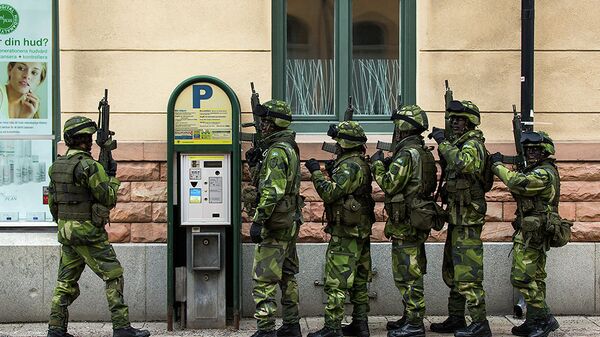Politicians often portray Sweden’s membership in the North Atlantic Treaty Organization (NATO) as a realistic and even inevitable measure to contain “an increasingly aggressive Russia,” but Moscow’s alleged “aggressiveness” stems, to a large extent, from NATO’s continuing expansion into areas of Russia’s traditional interests, Linus Hagström and Tom Lundborg, both researches at the Swedish National Defense College, wrote in Sunday’s issue of Dagens Nyheter newspaper.
With Sweden’s ability to defend itself against a possible invasion being increasingly cast into doubt due to the lack of material resources, a hefty 41 percent of Swedes now want their country to join the Western alliance.
The proponents of the “Sweden in NATO” idea argue that this would bolster the country’s defenses amid the ongoing conflict in eastern Ukraine.
In his recent article in Foreign Affairs, Chicago University Professor John J. Mearsheimer wrote that Russia should not be viewed as the only culprit in the Ukrainian crisis, which he said had been provoked by NATO and EU’s expansionist policy of the past two decades.
“Putin’s pushback should have come as no surprise. After all, the West had been moving into Russia’s backyard, threatening its core strategic interests and attempting to turn Ukraine into a Western stronghold on Russia’s border, a point Putin made emphatically and repeatedly,” Professor Mearsheimer wrote, adding that the United States would respond in a similar way if China suddenly decided to forge a military alliance with, say, Canada or Mexico.
“That’s why we do not think joining NATO would be the right way to go, because the existing security problems will not go anywhere, just as our lingering sense of insecurity. Therefore, we need to avoid quick fixes and learn to live in an unstable world,” Linus Hagström and Tom Lundborg wrote in conclusion.



